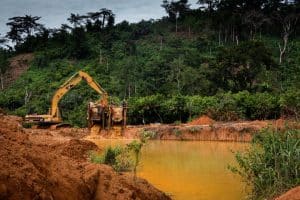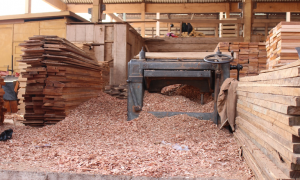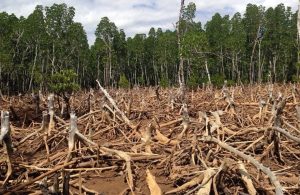Women shea nut collectors from the Gbantala, Kpalwogu, Katua, Wuntibri, and Yizesi communities have received training on the safe collection of shea nut using the shea nut rollers. According to the women, the traditional method of collecting shea nuts with bare hands is characterized by snake bites, scorpion bites, injuries from other sharp objects or sticks, and long bending or squatting, which usually results in waist pain and other health challenges.
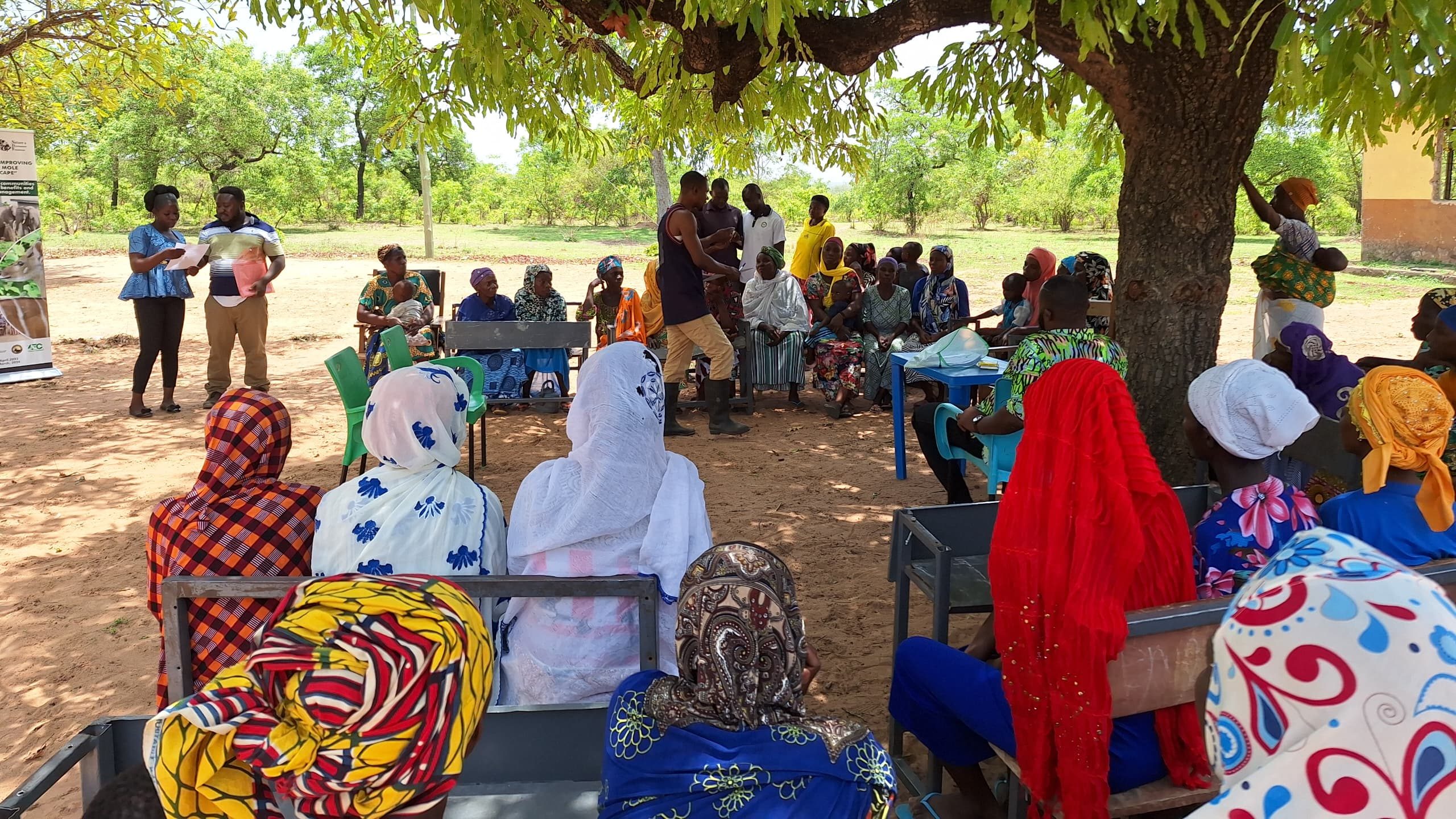
The training on using the rollers for the collection of shea nuts was organized for the women by the Nature and Development Foundation (NDF) as part of a project titled Living with Wildlife: Improving Livelihoods in the Mole Ecological Landscape.
The project is funded with UK Aid through the Illegal Wildlife Trade Challenge Fund (IWTCF). Among other interventions, the project targets to train 400 women within the CREMAs of Chakali – Sungmaaluu, and MWK of the Mole National Park on the safe and efficient collection of the shea nuts using the shea nut rollers. The NDF is sourcing these 400 women from 10 communities within the two CREMAs mentioned above.
During the training, which was facilitated by Mr. Midas Bambilla, a community engagement specialist and Operations Lead at AGRI-SAVANAH LIMITED (AGSL), the women were also trained on effective shea nuts storage techniques to preserve the quality of the nuts and thus enhance yields during processing. The women were encouraged to keep their nuts away from direct sunlight to preserve moisture content and away from rain, water, or moisture to avoid mold and other fungi growths or decay of the nuts.
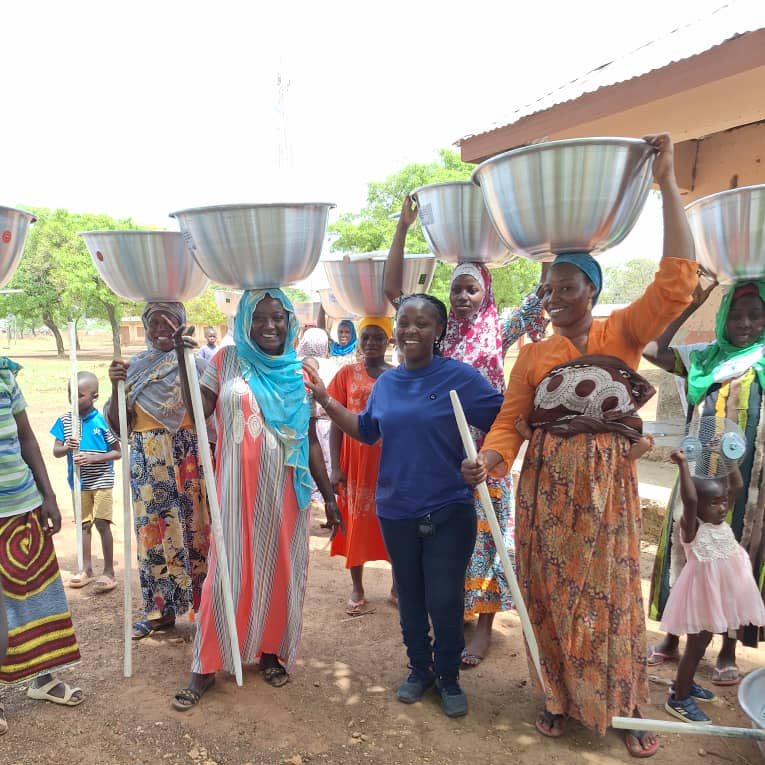
The project coordinator, Ms. Margaret Appiah of NDF, made the women aware that assistance had come to them because of their proximity to Mole National Park (MNP) and also because the communities are part of CREMAs.
Ms. Appiah educated the women on the importance of biodiversity conservation and urged them to contribute their quota by discouraging their sons, husbands, and other relatives from hunting in the MNP, and the women to also desist from trading the wildlife as bushmeat.
She further said that poaching and trading in buffalos, hartebeests, elephants, and other carnivores should cease and not be encouraged as these animals are endangered; hence, the prevailing numbers must be conserved to enhance viability within the species. She encouraged the women to be keen on the collection of shea nuts and to view the practice as a viable and sustainable business.
She also advised the women to save some of the proceeds from the sale of the shea nuts and to put their children in schools, as the children are leaders of the future.
At the end of the training, each of the women was given a complete set of shea roller equipment and other safety items, as well as a basin to support their shea nut-picking venture. The women were also promised linkages to good markets for the profitable sale of the collected nuts.
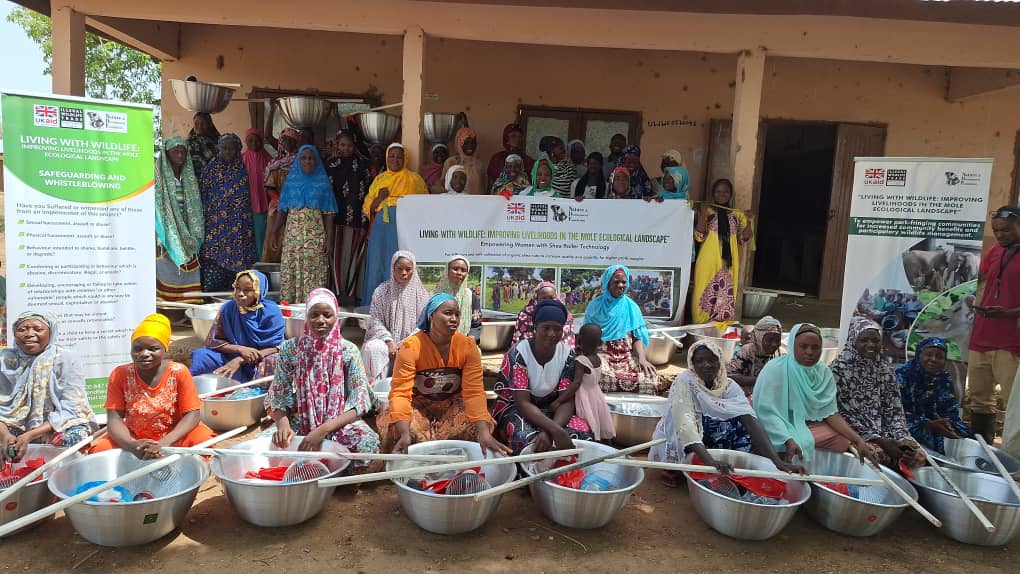
The women were so appreciative of the assistance given to them, saying that the rollers would not only relieve them of the pain of long hours of bending, animal bites, and associated injuries but would also enable them to pick up more quality shea nuts within relatively shorter times.
They said this will enable them to make more money, as the higher the quantities and qualities of your nuts, the better their value and price.
